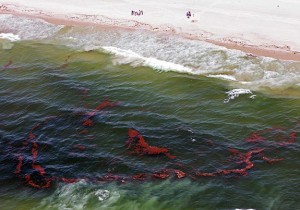
The catastrophic nature of the Gulf spill has affected 14 million residents of the Gulf Coast and could ultimately affect nearby Latin American and Caribbean shores. Predictions have been made that the spill could reach the Mexican coast by December, followed by Cuba, the Bahamas and The Turks and Caicos Islands. The Gulf oil spill has far reaching effects beyond the U.S. borders.
Such a huge disaster has everyone wondering why it happened and how we can prevent it from ever happening again. There are numerous liability issues surrounding the spill. BP’s oil spill cleanup response costs have hit $2.35 billion. It has been speculated that BP could eventually be fined $258 million a day. This would be in addition to payments for cleanup costs and economic damages to businesses.
There is no doubt that the regulatory systems in place for overseeing offshore oil and drilling failed. That system is controlled by an agency called the Minerals Management Service (MMS). It has been reported that they allowed BP to run the oil rig without demonstrating the ability to shut off the flow of gas and oil.
With fingers pointing to the MMS and pressure mounting, the head of the MMS, Elizabeth Birnbaum, resigned from her position. Michael R. Bromwich, a former Justice Department prosecutor and inspector general, has been appointed by the President to restructure the agency to make it a more effective regulator. There is now an independent commission investigating the Gulf oil spill that has been given subpoena power so that better regulating systems can be developed.
Is the United States accepting help from other nations? There may be offers made that haven’t been accepted however there are skimming systems and other assets accepted from Mexico, Norway, Canada, Germany and the Netherlands. The President has also authorized the use of 17,000 National Guard members to help with the clean up.
Massive efforts by various non-government organizations have been taken to clean birds drenched in oil. Some question the wisdom in this. According to German biologist Silvia Gaus, it would have been better if they put the birds to sleep instead of cleaning them since most aren’t likely to survive long term. Experts from other countries also say that this is a better way to treat the animals since they will be suffering liver and kidney failure after ingesting oil.
The economic impact of the oil spill in the Gulf is devastating. The fisheries in the area have been declared as a disaster zone making the seafood-producing states lose money with many businesses failing. Louisiana’s seafood industry supplies up to 40% of the United States’ seafood supply and the price of seafood has risen. Apart from this, wildlife in the area have suffered. Tourism is affected as well since many hotels have reported cancellations in reservations.The toll on a wide variety of human health issues has not even begun to be studied.
Many scientists are hopeful something good will come from this oil catastrophe. Americans have gained a better appreciation for their environment. We have turned to scientists to help answer the questions of why this even happened and how to prevent it in the future. People recognize the importance of a healthy marine ecosystem to our economy, culture and way of life in the Gulf Coast.